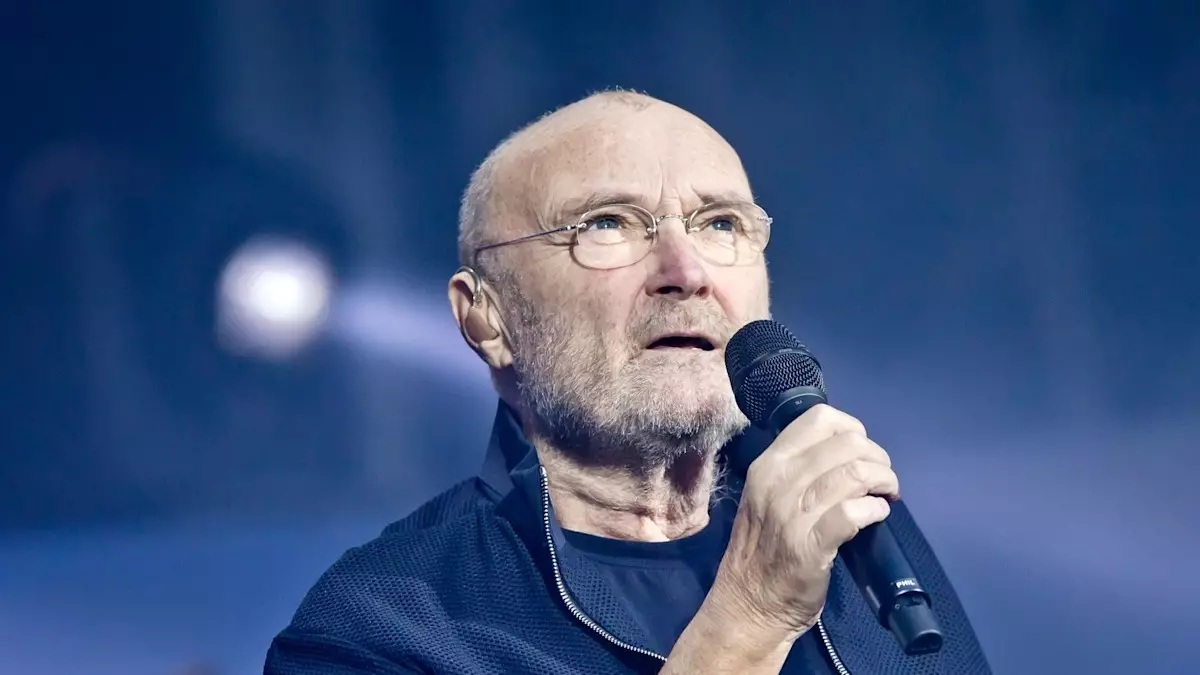In a somber revelation, legendary musician Phil Collins has shared an unsettling update on his health status, nearly three years after his retirement from the music industry. At 74 years old, the iconic drummer and frontman of Genesis, who has shaped the rock landscape for decades, faces a reality far removed from the exhilarating highs of musical stardom. His profound connection to music, once a driving force in his life, has met the harsh limitations imposed by deteriorating health.
Collins candidly expressed his feeling of disillusionment with music in a recent interview, saying that he has lost the ‘hunger’ to create. This statement is particularly poignant given his remarkable career, which has spanned over fifty years and seen him rise to the top of the music world. The abrupt decline not only underscores the repercussions of age and health but also ignites a conversation regarding the sacrifices artists make in their profession.
The once-vibrant Collins, who famously drummed from the tender age of five, has faced a series of debilitating health issues that have drastically altered his physical capabilities. The musician’s journey became notably rocky after he officially announced his retirement in March 2022, following a farewell performance in London alongside his Genesis bandmates, Mike Rutherford and Tony Banks. The emotional weight of that final show can’t be understated; it marked the curtain call for an artist who dedicated his life to the rhythm of his drums.
In a revealing YouTube documentary titled “Phil Collins: Drummer First,” Collins reflected on how the years of performing have taken a significant toll on his body. He spoke about the physical injuries he sustained as a drummer, manifesting in ailments like drop foot, which hinders his ability to walk without assistance. His revelation that he has become more physically challenged, expressing a longing to share the stage with his son, Nic Collins—who stepped in as Genesis’ drummer during their last tours—highlights the emotional burden of his situation.
Musicians often harbor an illusion of invincibility, portraying themselves as eternal performers. Nic Collins articulated this reality during the documentary when he emphasized how his father’s longstanding dedication to drumming and performance has resulted in debilitating health issues. This notion speaks volumes about the hidden costs of an artist’s lifestyle—intense physical strain, injuries, and the emotional devastation that accompanies the loss of one’s craft.
In the context of Phil Collins’ career, which includes major accomplishments and multi-million-selling albums, the shift in his health narrative from vibrant performer to a physically challenged individual serves as both a cautionary tale and an enlightening insight into the sacrifices made by artists. Chronicling the impact of various injuries, including a dislocated vertebra that has haunted him for years, sheds light on the cumulative effect of years in the industry and the precariousness of an artist’s physical well-being.
Despite the disheartening nature of his revelations, it is essential to remember Phil Collins’ remarkable contributions to music. His powerful voice and mastery of drums have resonated with fans across generations, forging a legacy that transcends his ongoing struggles. While the current chapter may be dominated by health concerns, his past achievements provide a rich tapestry of artistry that will endure long after he has left the stage.
As he grapples with an uncertain future in music, Collins remains a poignant reminder of both the fragility and resilience of the human spirit. Through his honesty and openness regarding his struggles, he encourages a broader awareness of the challenges many artists face and highlights the importance of mental and physical health in creative professions.
Much like the beats of his greatest songs, Phil Collins is a complex rhythm—one that, although perhaps diminished in volume, continues to resonate deeply within the hearts of his fans. As he redistributes his focus outside of music, the world watches and hopes for a moment when he might once again find the joy that first inspired his journey into rhythm and melody.

